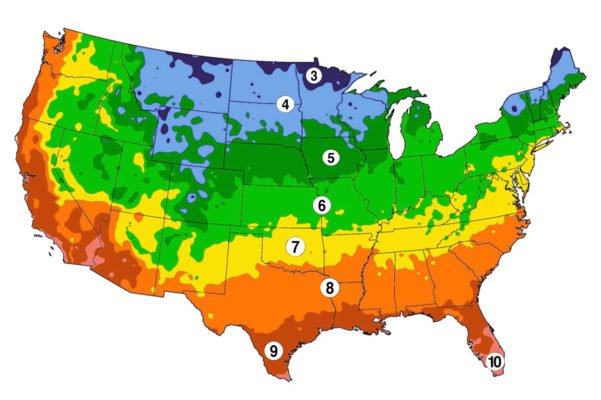Grow a salad garden in the Winter?
Wouldn’t it be great to grow vegetables outdoors even in the winter season? If you could, you’d be able to enjoy garden fresh flavors in your food throughout the winter. The great news is you can grow a salad garden during the winter! You just need to know how. But you especially need to know these two things that we will discuss:
- Which vegetables you can grow in the winter
- How to protect them through the winter
Determining which vegetables to grow
First of all, which vegetables can you grow in the winter outdoors? No matter where you live, the important thing is to know which plants can survive during the cold. You can determine which vegetables by first knowing your USDA Hardiness Zone location.
This lets you know how low temperatures normally drop in your area. You can then determine which vegetables would do well in the low temperatures.
- First, Check the map to find out what zone you’re in.
- Second, Google which plants will grow during the winter in your zone.
For example, my area is zone 7. This means I can grow beets, broccoli, cabbage, carrots, lettuce, onions, peas, potatoes, radishes, spinach, turnips, kale and collards in the winter.

Timing when to plant
The timing is also very important. You have to plant while you have a window of opportunity. You must wait until the weather is no longer hot and starts to cool.
But you don’t want to wait too long, as the days will get colder, shorter and darker by mid Winter. You want your plants to get established before the first frost. This puts your planting time window somewhere between late August through early October.
Preparing the soil
Microorganisms are not as they are in warmer weather. They play a key part in the plant’s ability to get the nutrition it needs from the soil. So, give attention to the soil by preparing beforehand. Make sure you add organic matter or fertilizer to the soil before planting.
Maintaining your Winter garden
Once your garden is established. The maintenance of your salad garden gets much easier during the Winter. The cooler weather gets rid of many warm weather pests.
The cool weather pests such as slugs and aphids are much easier to handle. And the growth in the winter is a lot slower.
While we’re on the subject of slower growth,– your plants won’t need as much water during the winter because of their slower growth.
Watering during the winter
In considering the watering during the winter. You may want to consider where you plant. Since you may not be able to run a hose during these cold temperatures, you may be watering by hand. So you may want to consider planting closer by so that you don’t have to lug water too far a distance.
Protecting your plants from the frost
You’ll need to protect your plants during the cold frosty weather. You can use frost blankets, bed sheets, a plastic-covered tunnel or cold frame.
Yes, it’s a bit of work. Especially in the beginning. But imagine the benefits of enjoying fresh organic salad all year long. Even in the Winter!
